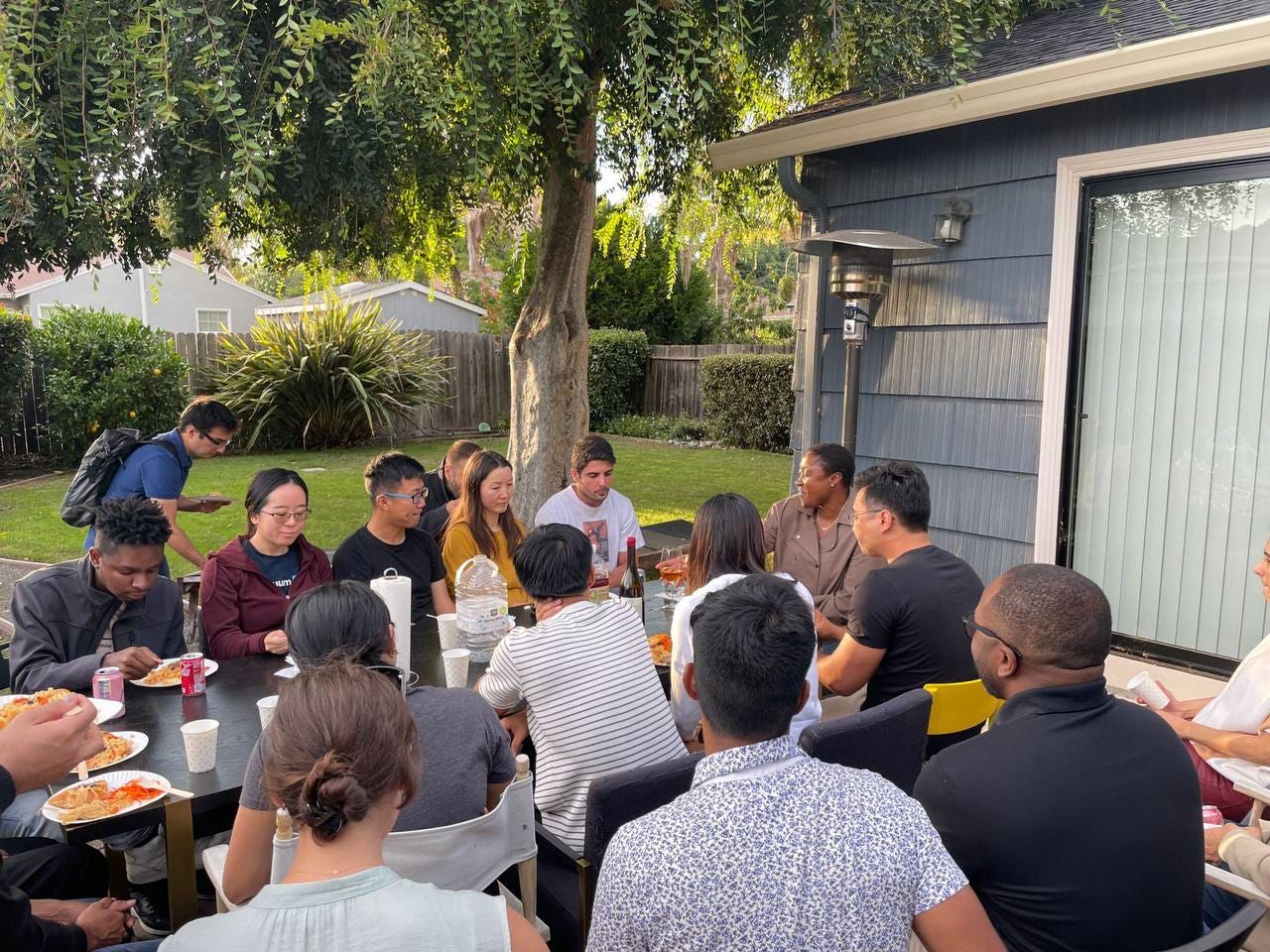SV Icons: Aicha Evans, Zoox
Aicha Evans is the CEO of Zoox, self-driving car company. Throughout the dinner, Aicha was gracious to share her lessons on the autonomous vehicle industry and her life.
Autonomous Cars
For Aicha, the adoption of driverless cars will be similar to airlines, taking many years before widespread adoption, similar to the trajectory of the Wright Brothers. Zoox is focused on selling rides (mobility as service), not self-driving cars. Self-driving cars are costly, so expecting customers to pay the total cost and adhere to the highest safety standards is daunting. Instead, a better model is to have the car pay for itself by only charging the customer for a ride (rather than focusing on ownership).
Zoox does not believe retrofitting cars to be autonomous makes sense, given that conventional vehicles were designed for human drivers. Hence, Zoox is building its cars from scratch. Zoox wants to focus on transporting people first, then goods and services. Why? People are reluctant to pay a high delivery price but are comfortable paying at least the price of current mobility providers (such as Uber and Lyft) for transport, which using modeling based on current prices provides a pathway for Zoox to be profitable.
Zoox has invested heavily in its technologies to ensure safety. AI is a cost-based logic, not a controlled-based logic, so ethical choices around trolley problems won’t arise for autonomous cars. The key responsibility is ensuring that training data does not exacerbate systematic societal biases in the AI model. The underlying math AI is 100 years old, but what’s innovative is the computation power available today that allows us to harness it truly. Zoox designs its cars with redundancy, which is why they have many sensors running LIDAR, radar, and long-wave infrared. Autonomous cars must be held to safety standards better than a human driver, not just as good as a human driver.
Life Advice
Aicha believes that entrepreneurs need mentors, sponsors, and coaches. Mentors are someone to talk through problems with, similar to a shrink but for your professional life. Sponsors are someone who can advocate for you and will bat for you, even when you are not in the room.
It is essential that sponsors are decision-makers, and it is often helpful to have sponsors who are different from you in their background (as they can make the case in communities and forums you might not naturally be in). This is especially important if your identity makes you a minority. Aicha has had several sponsors in her life. How to get a sponsor? Ask to meet them for a 1:1. Then ask if you can see them for just 30 minutes every 3 to 4 months. Over time they take an interest in you and are excited to nurture you. Finally, coaches help you improve on what you are weak at.
Aicha learns from different people, including broadway actors. She learned from a broadway actor who had to do the same play multiple times a week for several months. That broadway actor consistently reminds himself that each performance is always the first time for the audience and that as the performer, he owes them the very best show.
As a leader, she strives to really understand and meet people where they are. She likes to know: Why do you think like that? What motivates you?
“What matters is not what you say as a leader, but what is heard.”
She would ask questions to help convince people and earn their trust rather than outright tell them (to build up support in the company). This is a fantastic way for people to arrive at a conclusion with you, rather than telling them what to do. Especially important when you are managing incredibly smart people who have a big sense of pride in their work.
Other lessons shared by Aicha:
Do dumb things: opens up your eyes to be creative;
Whoever controls the customer wins:
This is the reason cloud computing companies (Amazon, Microsoft, Google) did so well, even though underlying hardware is provided by someone else.
To get ahead: pick difficult projects that no one wants to take on but are important for the company. This way if you’re successful, you stand out, and if you fail no one is surprised since it was hard;
Learn the why behind and what triggers failures so you are set up better for the future;
People in Silicon Valley are smart but tend to think in a very similar way. Think critically and for yourself;
She looks up to Marie Curie, Nelson Mandela (20 years in jail and not angry - she learns generosity from him), Andy Grove (who helped her a lot), Socrates, and Plato, her husband;
She knows the way to create change is to count her blessings and be an agent of change.
Recommended readings:
The Republic by Plato;
What Got You Here Won’t Get You There by Marshall Goldsmith.
Organizer: Georgi Koreli
Host: Chyngyz Dzhumanazarov
Editor: Jackly Lin
Contributors: Julia Di, Sasankh Munukutla, XJ Zhang, Asset Abdualiyev

